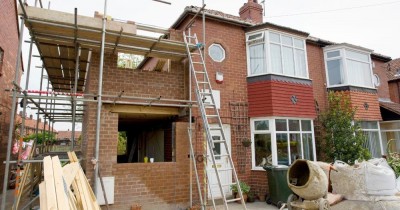Need help figuring out how to manage viewing appointments whilst the children are off school in the summer holidays? Read this article for tips.
Can you cut the overhanging branches from your neighbour's tree? Or paint your side of the boundary fence? Read this article to find out before you end up in a neighbour dispute that could scupper your plans for a sale in the future.
If you need more space in your property, you may be trying to decide between moving to a large house or extending your current home. Read this article to discover whether an extension is a guaranteed way to increase the value of your home.
It is official, summer has finally arrived in the UK! Of course, as with every year, there is no way of knowing exactly how long it will last, so take the opportunity to get those summer jobs done in your property while you can.
Moving house can be stressful for everyone, but extra special care is essential for the little people in our lives. This article gives tips on how to help children navigate a house move.
Paint your home white or magnolia and remove all traces of your family before selling your house has been the guidance for years. Faced with a complete redecoration before you can market your home, it can act as a barrier to even getting started. And it could actually be detrimental to your sale overall. Read this article to find out why.
Moving house can be stressful, and it is vital to look after your mental health and well-being during this time. Read this article for guidance on keeping calm during your move.
So you've decided that you want to move, you've decided that the time is right, and you may even have decided where you want to move to, but how do you decide which estate agent to use?
Summer is almost here, and with it comes more creepy crawlies and buzzing insects. But what happens if you discover that wasps have nested in one of your rental properties? Read on to find out more…
Don't get in the way of the sale of your own property - work with your agent, not against them. Read this article to avoid these mistakes and ensure your home sells.
There are many ways to promote a property for sale, but an often overlooked option is to harness lifestyle photography in your property marketing. Read this article to find out more.
Finding a property to invest in takes time, and there are many different factors to consider before you make your choice. Location is one of the key elements that you need to get right to keep your investment safe. Read this article to learn more about selecting the best area for investment.











